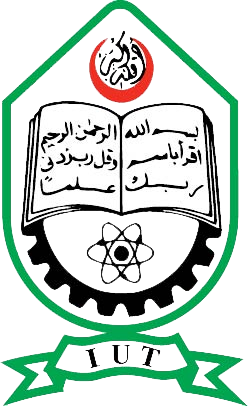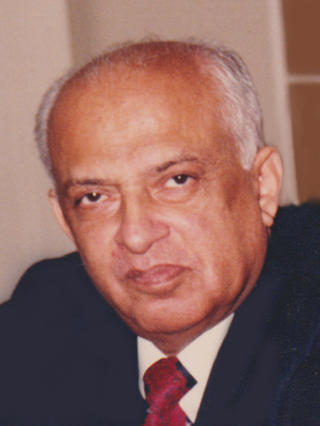
The International Astronomical Union is a non-governmental organisation with the objective of advancing astronomy in all aspects, including promoting astronomical research, outreach, education, and development through global cooperation. It was founded in 1919 and is based in Paris, France.

The Organisation of Islamic Cooperation, formerly the Organisation of the Islamic Conference, is an intergovernmental organization founded in 1969, consisting of 57 member states, with 48 being Muslim-majority countries. The organisation states that it is "the collective voice of the Muslim world" and works to "safeguard and protect the interests of the Muslim world in the spirit of promoting international peace and harmony".

Ekmeleddin Mehmet İhsanoğlu is a Turkish chemistry and science history professor, academician, diplomat and politician who was Secretary-General of the Organisation of Islamic Cooperation (OIC) from 2004 to 2014. He is also an author and editor of academic journals and advocate of intercultural dialogue.

The Organization for Women in Science for the Developing World (OWSD) is an international organisation that provides research training, career development and networking opportunities for women scientists throughout the developing world at different stages in their career. It was founded in 1987 and was officially launched in 1993. The organisation was formerly known as the Third World Organization for Women in Science (TWOWS). It is a program unit of UNESCO and based at the offices of The World Academy of Sciences in Trieste, Italy.

Islamic University of Technology, commonly known as IUT, is an international engineering technological research university located in Gazipur. IUT offers undergraduate and graduate programs in engineering and technical education.

International Islamic Fiqh Academy is an international Islamic institution for the advanced study of Islamic jurisprudence and law based in Jeddah, Saudi Arabia. It was founded following a resolution by the Third Islamic Summit Conference of the Organization of Islamic Cooperation, held in Mecca, that called for the establishment of an Islamic Fiqh Academy. The International Islamic Fiqh Academy was established in June 1983 as a subsidiary organ of the Organization of Islamic Cooperation. It consists of 57 member states and representatives.
The International Union of Food Science and Technology (IUFoST) is the global scientific organization and voice for food science and technology representing more than 300,000 food scientists, engineers and technologists through its work in more than 100 countries. It is a voluntary, non-profit association of national food science organizations. IUFoST is the only elected scientific representative of Food Science and Technology in the International Science Council (ISC), elected by its peers across scientific disciplines. It is the only global representative of food science and technology to notable organizations such as the World Health Organization (WHO), Food and Agriculture Organization (FAO) of the United Nations, United Nations Development Programme and (UNDP), CODEX Alimentarius.

Atta-ur-Rahman, h-index 75, with 36,000 citations is a Pakistani organic chemist and is currently serving as Professor Emeritus at the International Center for Chemical and Biological Sciences at the University of Karachi and as Chairman of PM Task Force on Science and Technology. He has twice served as the President of Pakistan Academy of Sciences. He was the Federal Minister of Science and Technology (2000-2002), Federal Minister of Education (2002) and Chairman Higher Education Commission with status of Federal Minister (2002-2008) He is also the President of the Network of Academies of Sciences in Countries of the Organisation of Islamic Countries (NASIC). After returning to Pakistan from Cambridge after completing his tenure as Fellow of Kings College, Cambridge University, he contributed to the development of the International Center for Chemical and Biological Sciences at the University of Karachi, and transforming the landscape of higher education, science and technology of Pakistan. He is Fellow of Royal Society (London), Life Fellow of Kings College, Cambridge University, UK.,, Academician Chinese Academy of Sciences and Professor Emeritus at University of Karachi
Standing Committee for Scientific and Technological Cooperation (COMSTECH) is one of four standing committees of the Organisation of Islamic Cooperation dedicated to the promotion and cooperation of science and technology activities among the OIC member states.
Tan Sri Augustine Ong Soon Hock is a Malaysian scientist, academic, and board member. He is internationally recognized in the field of lipid chemistry.
Mazhar Mahmood Qurashi, best known as M. M. Qureshi was a Pakistani physicist and an Islamic scholar who was educated in Lahore and Manchester. He earned prestige and notability after authoring important publication on Islam and science and abstract theories to explain the religious phenomenon and events, explained in Koran— a Quran of Muslims.

Pakistan continues to enjoy a privileged status in the Organisation of Islamic Cooperation. In terms of population, it is the OIC's second largest member. Pakistan is the only Muslim country to have detonated nuclear weapons, has the sixth-largest standing military force in the world and a large labour workforce working in various Muslim countries.
Naeem Ahmad Khan, FPAS, was a Pakistani nuclear physicist and a professor of physics who was known for his work in developing techniques using the solid-state nuclear track detector and solid-state nuclear magnetic resonance. Although he worked with the Government of Pakistan for most of his career, he also taught physics at a number of Pakistani universities and was the civilian scientist of the Pakistan Air Force (PAF) until his death.

Tan Sri Zakri bin Abdul Hamid has had a distinguished career in science as a researcher, educator, administrator and diplomat.
Science and technology is Jordan's growing economic sector. This growth is occurring across multiple industries, including information and communications technology (ICT), solar and wind energy and nuclear technology.

Mumtaz Ali Kazi, popularly known as M.A. Kazi, was one of Pakistan's leading scientists and educators. He was President of the Pakistan Academy of Sciences from 1978 to 1988 and President of the Chemical Society of Pakistan from 1977 to 1990.

Ali Akbar Moosavi-Movahedi is an Iranian Biophysicist, and Biophysical Chemist at the Institute of Biochemistry and Biophysics, University of Tehran. He is the founder of the Iran Society of Biophysical ChemistryArchived 2014-09-04 at the Wayback Machine. He is the fellow of The World Academy of Sciences (TWAS), fellow of Islamic World Academy of Sciences (IAS), and a member of the Islamic Republic of Iran Academy of Sciences.

The Research Centre For Islamic History, Art and Culture, also known as the Istanbul Research Center for Islamic Culture and Arts is the first cultural centre and a subsidiary organ of the Organisation of Islamic Cooperation established in 1979 after the Republic of Turkey proposed IRCICA in the 7th Islamic Conference of Foreign Ministers, in Istanbul, 1976. The proposal was adopted by the OIC under the resolution no. 3/7-ECS. It formally started inaugural functioning on 23 May 1982.
Islamic Organisation for Food Security, is a food and agriculture organization and one of the eight specialized institutions of the Organisation of Islamic Cooperation focused on the development of agriculture and rural development with primary focus on widespread scarcity of food and food security of the member states. Its charter is formally signed by 41 member states out of 57 as of 2024. The associated member states work in collaboration with IOFS.

The Charter of the Organisation of Islamic Cooperation, commonly known as OIC Charter, is the foundational treaty of the Organisation of Islamic Cooperation. Its foundational principles are based on 18 chapters that objectively maintains the purpose, focus, functions, and foundation of the OIC, an intergovernmental organization founded in 1969. The charter was formally signed on 25 September 1969 by the 57 member states, including 5 observer states. However, it was revised by the 11th summit held in Dakar, Senegal on 14 March 2008.
















